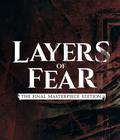During a three-day period, Nintendo representatives seized more than 10,000 game copying devices and mod chips. The game copying devices connect to the Nintendo DS and are used to copy and play game files offered unlawfully via the Internet. The mod chips allow the play of pirated Wii discs or illegal copies of Nintendo games downloaded from the Internet.
The search also turned up volumes of documents reflecting the scope of the operation. The Supreme Factory Limited has ties to a French company, Divineo SARL, and its principal, Max Louarn, who are also named in the legal action initiated by Nintendo. The High Court prohibited the companies from further distribution of the devices and from disposing a portion of their assets worldwide, and ordered that such assets be frozen pending outcome of the legal proceedings.
"Piracy affects the entire video game industry, from large companies to independent developers," says Jodi Daugherty, Nintendo of America's senior director for anti-piracy. "It can destroy years of hard work by a team of very talented software developers, who strive to create games consumers enjoy playing. Copying the developers' work and spreading the game files globally is blatant stealing."
Piracy not only affects Nintendo, but also more than 100 companies that independently create, license, market and sell Nintendo video game products. Nintendo and these companies lost an estimated $762 million in sales due to counterfeits in 2006.
This action is one of several that Nintendo has initiated over the years against game copiers and mod chips. In 2005, Nintendo was awarded more than $5 million in damages from the Hong Kong High Court against Lik Sang, a company responsible for the widespread distribution of game copying devices. In another case, a U.S. judge ordered Bung Enterprises to pay Nintendo $7 million in damages in connection with its involvement in manufacturing and distribution of such products.











